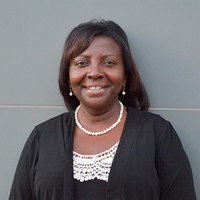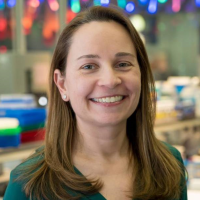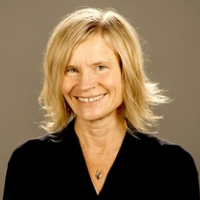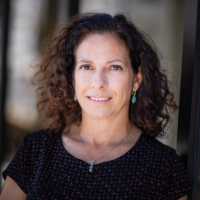Education, Diversity & Inclusion and Workforce Development Advisory Board

Theresa Chatman
Director of Diversity & Inclusion
Rice University/PATHS-UP ERC

Vanessa Hale
Assistant Professor, Department of Veterinary Preventative Medicine
The Ohio State University

Julie Horvath
Head of Genomics & Microbiology Research Lab & Research Associate Professor
North Carolina Museum of Natural Sciences & North Carolina Central University

Kara Nelson
Blum Chancellor's Chair in Development Engineering & Professor of Civil & Environmental Engineering
University of California – Berkeley

Amy Pruden
W. Thomas Rice Professor & University Distinguished Professor of Civil & Environmental Engineering
Virginia Polytechnic Institute and State University
Theresa Chatman

Theresa Chatman directs the diversity and inclusion efforts for large, multi-institutional grants for Rice University’s Office of Research, including two National Science Foundation (NSF) Engineering Research Centers (ERCs), the Nanotechnology Enabled Water Treatment (NEWT) Center and the Precise Advanced Technologies and Health Systems for Underserved Populations (PATHS-UP). She has managed numerous activities at Rice University focused on the recruitment, mentoring, and retention of underrepresented minority (URM) students in all fields of academic pursuits, including social sciences, humanities, and science, technology, engineering, and mathematics (STEM). She has also been instrumental in many national partnerships and events designed to support URM students, including her service as Chair of NEWT’s Inclusion Oversight and PATHS-UP’s Diversity and Inclusion Boards. Her work has enabled and inspired hundreds of students to focus on their academic programs and achieve their personal and professional goals.
Through outreach programs that Theresa has helped orchestrate for several organizations and activities, such as the National Consortium for Graduate Degrees for Minorities in Engineering and Science (GEM), the Rice-Houston Alliance for Graduate Education and the Professoriate (AGEP), the Center for Research on Parallel Computation (CRPC), the Diversity Graduate Program in Science and Engineering, the Rice University Graduate Orientation Program, and others, Rice University has been recognized as having an outstanding percentage of URM Ph.D. graduates. After graduating from Rice, these students have gone on to make their own mark in their respective fields at universities, national laboratories, and in industry.
Vanessa Hale

Vanessa Hale completed her undergraduate degree at the University of Georgia and then taught high school for 3 years and obtained a Masters in Teaching (Secondary) from Western New Mexico University. She got a DVM PhD (Ecology, Evolution, Environmental Biology) at Purdue University studying the gut microbiome and health of wild and captive colobine monkeys. She then did a postdoctoral fellowship in the Mayo Clinic Microbiome Program examining the relationship between the gut microbiome and diseases including colorectal cancer and Clostridioides difficile infection, formerly Clostridium difficile. At Ohio State University (OSU), she draws on her background in ecology and human and animal health to study the microbiome and disease using a One Health approach. Vanessa also serves as a Co-Director of the Microbial Communities Program within OSU’s Infectious Diseases Institute and the Associate Director of the Center of Microbiome Science.
Julie Horvath

Julie Horvath, PhD is the Head of the Genomics & Microbiology Research Lab at the North Carolina Museum of Natural Sciences, and is jointly appointed as an Associate Research Professor at North Carolina Central University. She received her bachelor’s degree in Zoology with a genetics concentration from Michigan State University and went on to earn a PhD in Human Genetics from Case Western Reserve University. She is an Associate Director for the Triangle Center for Evolutionary Medicine, she holds an Adjunct Professor position in Duke’s Evolutionary Anthropology Department, is an Adjunct Associate Professor in the Department of Biological Sciences at NC State University, and is a Domain Scientist for Human Biology at the Renaissance Computing Institute at UNC-Chapel Hill. Her research uses evolutionary and comparative approaches to explore the connection between host and microbial genetics and the impact on health and behavior. She brings expertise in science communication and citizen science projects that engage thousands of students and the public in her genetics and skin microbiome research on human and animal health and well-being. She is passionate about training and engaging students and the public in scientific research that impacts their daily lives.
Kara Nelson

Kara Nelson is the Blum Chancellor’s Chair in Development Engineering and a Professor of Civil and Environmental Engineering at the University of California, Berkeley. Prof. Nelson teaches courses and conducts research on critical issues at the intersection of public health and the environment. Her research program investigates practices for wastewater based epidemiology, water reuse, disinfection, nutrient recovery, and international WASH (water, sanitation, and hygiene), which draw on her expertise in a wide range of treatment processes including filtration, membrane processes, ion exchange, and disinfection with UV, sunlight, and ammonia. Prof. Nelson teaches courses on innovation in the water sector, drinking water and wastewater treatment processes, pathogen detection and inactivation, and natural treatment systems. She led the Engineering Research Thrust at ReNUWIt (www.renuwit.org) and a large regional program to monitor SARS-CoV-2 in wastewater (COVID Wastewater Based Epidemiology for the Bay Area; www.covid-web.org). Prof. Nelson is passionate about creating a climate in which everyone belongs and can reach their full potential, and previously served as Associate Dean for Equity and Inclusion in the College of Engineering.
Amy Pruden

Prof. Amy Pruden is the W. Thomas Rice Professor and University Distinguished Professor in the Department of Civil and Environmental Engineering at Virginia Tech. She earned her B.S. in Biological Sciences (1997) and her PhD (2002) in Environmental Science, both at the University of Cincinnati. Her research and teaching focus on bringing a microbial ecological perspective to advancing control of pathogens and antibiotic resistance in the design and management of water, wastewater, and recycled water systems. Pruden has served on several National Academy of Sciences Engineering and Medicine (NASEM) committees: including Management of Legionella in Water Systems, the Environmental Health Matters Initiative, and the One Health Action Collaborative. Pruden is the recipient of the Presidential Early Career Award in Science and Engineering, the Paul L. Busch Award for innovation in water research, the Recipharm International Environmental Award, and is a fellow of the International Water Association.
